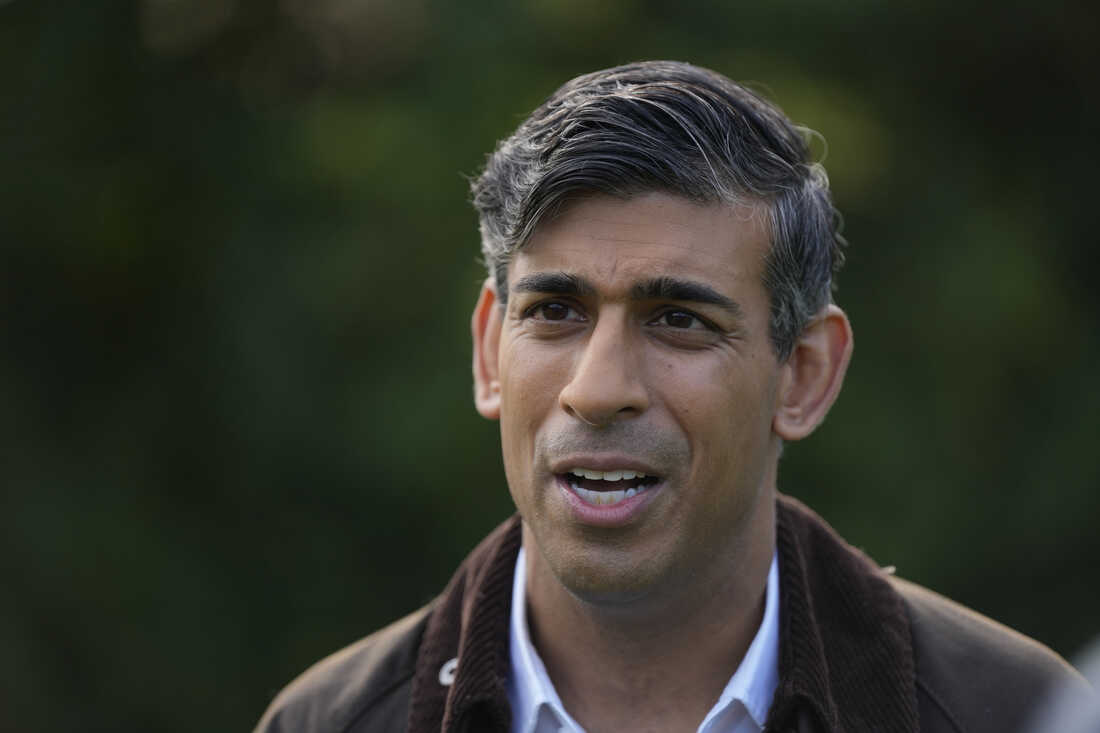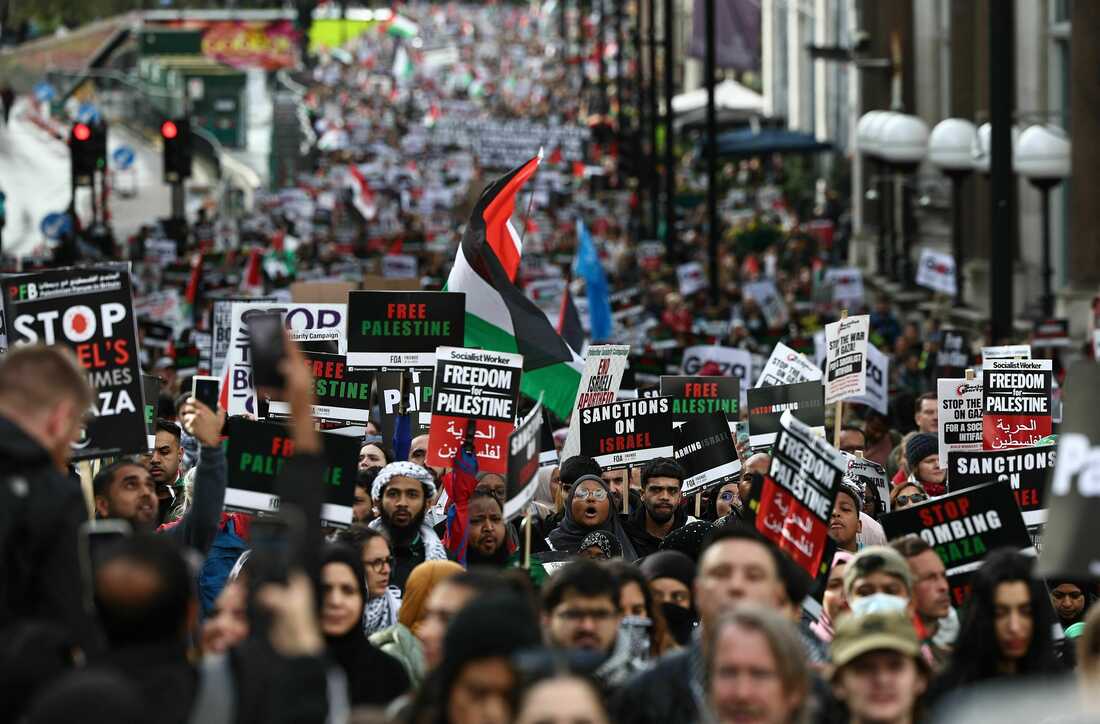Rishi Sunak defends U.K. climate policy U-turn amid international criticism
By Fatima Al-Kassab
British Prime Minister Rishi Sunak visits Writtle University College, an agricultural college in Writtle, United Kingdom, a day after making his announcement about changes to Britain's climate policies. ALASTAIR GRANT/POOL/AFP via Getty Images hide caption
toggle caption ALASTAIR GRANT/POOL/AFP via Getty ImagesBritish Prime Minister Rishi Sunak visits Writtle University College, an agricultural college in Writtle, United Kingdom, a day after making his announcement about changes to Britain's climate policies.
ALASTAIR GRANT/POOL/AFP via Getty ImagesLONDON — Amid growing international criticism, British Prime Minister Rishi Sunak has defended watering down key U.K. climate policies.
, Sunak announced a series of major including delaying by five years the target to ban sales of new gas and diesel cars — which will now come into force in 2035 rather than 2030 — and a nine-year delay on phasing out gas boilers, which will now come into force in 2035.
Sunak insisted he was not slowing down efforts to combat climate change. But his government's own the prime minister's assertion that the U.K. would still succeed in meeting its 2050 net-zero target "wishful thinking."
and sparing the British public the "unacceptable cost" of net-zero commitments.His home secretary, Suella Braverman, that the Conservative government was "not going to save the planet by bankrupting British people."
The government's Climate Change Committee — independent advisers on cutting carbon emissions — that meeting Britain's legally binding goal of reaching net zero by 2050 will require an extra $61 billion of investment every year by 2030.
But the committee has said that once the savings from reduced use of fossil fuels are factored in, the overall resource cost of the transition to net zero will be less than 1% of GDP over the next 30 years. By 2044, the committee has said, breaching net zero should become as newer clean technologies are more efficient than those they are replacing.
Criticism at home and abroad
Sunak's overhaul of his green targets has been met with criticism at home and internationally.
Former U.S. Vice President Al Gore as "shocking and disappointing" and "not what the world needs from the United Kingdom."
Some in the prime minister's own Conservative Party warned that the changes risk damaging Britain's reputation as a global leader on the climate.
to miss a U.N. General Assembly in a decade.Former Conservative minister Alok Sharma, who chaired the 2021 in Glasgow, Wednesday's announcement had been met with "consternation" from international colleagues.
"My concern is whether people now look to us and say, 'Well, if the U.K. is starting to row back on some of these policies, maybe we should do the same,'" he said.
In the U.K., Sunak's announcement prompted a backlash from , car manufacturers and the energy industry.
In a statement, U.K. Ford chair Lisa Brankin , "Our business needs three things from the U.K. government: ambition, commitment and consistency. A relaxation of 2030 would undermine all three."
And the chief executive of one of Britain's largest energy suppliers, Eon UK, was a "misstep on many levels."
Sunak's pivot occurs as extreme weather due to climate change is growing more frequent
Sunak said the announcement was part of his desire for a more "honest debate" about what reaching net zero will actually mean for the British public.
But he has come under criticism from the British for claiming to that some have pointed out never in the first place, such as taxing meat and requiring households to have seven different waste and recycling bins. (The government had previously said, although the plan was subsequently delayed and never became policy).
Political analysts say Sunak's , who has spent his first year in office largely steadying the ship after the tumultuous governments of his predecessors Liz Truss and Boris Johnson. With a general election coming up next year, they say, Sunak has chosen net zero
During this week's climate summit in New York, London Mayor Sadiq Khan said the capital faced what he called the "incredibly worrying" prospect



